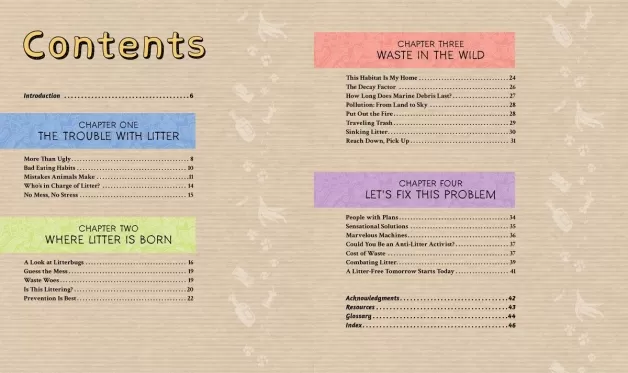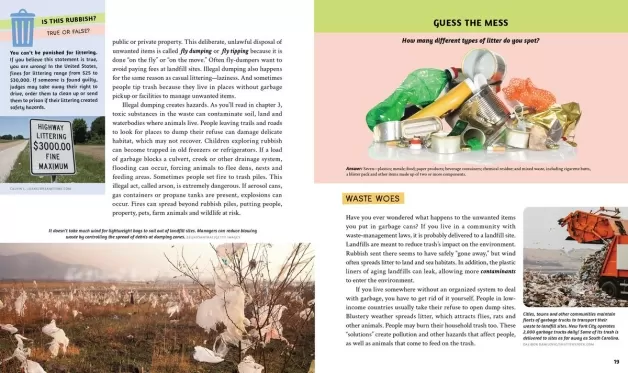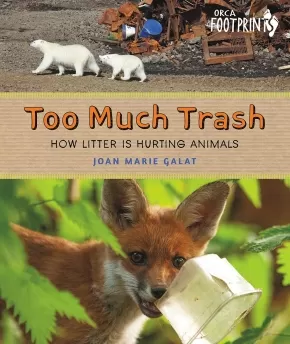Too Much Trash: How Litter Is Hurting Animals
Synopsis:
Preview Images (2)

Litter is not only an eyesore but a serious threat to animals and their habitats. We can all work together to keep the planet healthy and clean.
Did you know that gum on the sidewalk is litter? Even a banana peel that is thrown in a ditch is litter. Trash poses a threat to animals everywhere, including pets, farm animals and wildlife. They can get injured or trapped in the litter and even eat garbage that makes them sick.
In Too Much Trash: How Litter Is Hurting Animals, we discover how garbage ends up everywhere—from city streets and the wilderness to farmland and the ocean. But there's good news: litter is a problem everyone can help prevent. Around the world, kids and adults are finding ways to take out the trash. Find out how you can help clean up the planet for all species.
Reviews
“Lively design layouts with discrete, digestible bits of text make the book accessible and inspiring. Showing how refuse harms humans and other animals, this work should move readers to act.” — Kirkus Reviews
Educator & Series Information
This book is part of the Orca Footprint series. Kids today inhabit a world full of complex—and often mystifying—environmental issues. Orca Footprints aim to help kids answer their questions about the state of the natural world with well-researched, simply-expressed information and powerful images. With topics such as food production, water, cycling and sustainable energy, these books will inspire kids to take action.
Recommended for ages 9-12.
Additional Information
48 pages | 8.00" x 9.50" | Hardcover

 Go
Back
Go
Back




